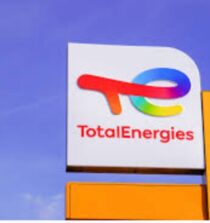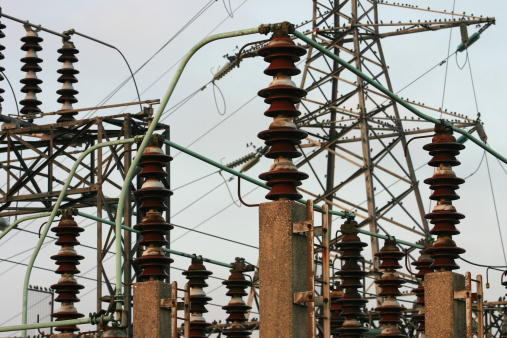The operational and commercial performances of Nigeria’s power sector have continued to worry all stakeholders in the value chain. Recent developments are also not allaying the fears of Nigerians in terms of the industry’s sustainability. STANLEY OPARA examines the misfortunes of the industry and the need to address them for national good.
Inadequate gas supply, transmission bottlenecks and limited distribution networks are currently the major setbacks faced by the power sector, not leaving out the liquidity challenge in the electricity industry, with particular emphasis on the poor remittance by the power distribution companies (DisCos).The Nigerian Electricity Regulatory Commission, last week, in a multi-paged report, expressed worry over the bad state of the industry, and thus called on all stakeholders to salvage the situation given the strategic role the industry plays in the entire economy.
With respect to the Electric Power Sector Reform (EPSR) Act 2005 mandate, the sector had fallen short of stakeholders’ expectations, and this had continued to generate huge investment concerns. For instance, during the third quarter of 2017, the total electric energy generated stood at 7,568,489MWh. This was 3.2 per cent less than the generation in the second quarter. For the quarter under review, the industry recorded the peak daily generation of 4,589.70MW on September 6, 2017. Despite the increase in the peak generation in the third quarter, however, the utilisation of the total available generation capacity was still constrained by a combination of the factors enumerated above.
The DisCos were collectively billed a total sum of the N151.75 billion during the period under review but only N90.30 billion was recovered through collections, according to NERC. This represents an average of 55 per cent collection efficiency, thus implying that of every N10 worth of electricity sold during the quarter, N4.50 remains uncollected from customers.
But the DisCos had been identified as the cause of the challenge owing to their unwillingness to meter electricity consumers, who had earnestly sought to be metered, even at a cost to them (consumers).The regulator, however, insisted that the key initiative towards improving revenue collection in the electricity industry is the provision of meters to all end-use consumers of electricity. In this regard, the Commission has initiated public consultations towards the development of a regulation to address the metering gap in the electricity sector in line with the Commission’s metering target.
Ironically, DisCos are still in huge debts despite their wide adoption of the estimated billing model, which entails arbitrary billing of electricity consumers without due consideration of their actual consumption.Currently, DisCos are indebted to the Nigerian Bulk Electricity Trader (NBET) and Market Operator (MO) to the tune of N103bn, based the recently released NERC Q3 report.
DisCos were issued an invoice totaling a sum of N147billion for energy received from NBET and for the service charge by the Market Operator in the third quarter of last year, but only N44 billion was settled, creating a shortfall of N103 billion.
“The financial liquidity of the electricity industry remains as the most significant challenge affecting the sustainability of the power sector. The major contributors to the financial crisis in the industry are tariff deficits, high technical and commercial losses exacerbated by customer apathy arising from estimated billing and poor quality of supply in most load centres,” NERC explained.
Sector’s debtor profile worrisome
For the period under review (Q3), the total invoice issued to international customers – Community Electric du Benin (CEB)/SAKETE and NIGELEC) and the special customer (Ajaokuta Steel) stood at N21 billion. However, no payment was received from these customers during the quarter under review. “On account of the bilateral nature of the export of energy to the republics of Niger and Benin, efforts are being made at the appropriate levels to ensure that the utilities pay for the energy supplied from Nigeria,” NERC assured. CEB)/SAKETE and NIGELEC are directly connected to the national grid through an inter-connector, and have a commercial relationship with the Nigerian Bulk Electricity Trader (NBET).
Minister seeks states’ help
Fashola had insisted that DisCos were having difficulty funding distribution infrastructure, and thus, called on state governments to provide facilities to protect Federal Government’s 40 per cent stake in the power sector.States were called upon to offer support towards improved power infrastructure in their respective domains in order to protect governments’ stake.
Fashola was quoted to have said, “It is no longer news that the power distribution companies are having difficulty funding distribution infrastructure. Therefore, as collective 40 per cent shareholders, we cannot sit back without finding a solution.”
BPE insists DisCos need technical help
The Bureau of Public Enterprises (BPE) had said most of the power distribution companies in Nigeria were technically bankrupt, adding that there was a need to immediately solve the challenges bordering on price structure and liquidity of DisCos. The Director-General, BPE, Alex Okoh, was quoted as saying that:“We need to solve the liquidity challenge. How do we make the industry viable in terms of liquidity? If we take all the energy that the DisCos buy and the energy sold, assuming there is minimal losses on collection side, we’ll find it difficult to get enough revenue to push us through.
“There’s a gap in the price structure. There is an empirical way of bridging other gaps. If we identity what that gap is, then government can handle the other issues. They (DisCos)need to improve infrastructure that consumers can pay for, but technically they don’t have the capacity to do so.
DisCos despair
The DisCos under the aegis of Association of Nigerian Electricity Distributors (ANED), have said that until the liquidity crisis is sorted, Nigerians cannot enjoy uninterrupted power in the next five years.They put the power sector liquidity shortfalls at about N1.3 trillion, and called for stakeholders’ collaboration to tackle the issue for the common good of Nigeria.
The spokesperson for the group, Sunday Oduntan, said: “The sector is bleeding, which is why the country cannot have stable power. The re-flow crisis in the sector is a major issue, and there was a need to tackle the subject collaboratively without sentiments or politics.”Oduntun attributed the perceived inefficiency of the power distribution companies to infrastructural challenges, the lack of heavy investment and cooperation from customers, especially in the area of energy theft.
International community shows concern
The United States has identified the lack of proper structure as the biggest challenge of the power sector in Nigeria. Roseann Casey, Representative of the United States Power Africa, a U.S. government-led initiative coordinated by the US Agency for International Development (USAID) on Technical partnership, said: “There are so many debts in the system. There are a lot of mentalities that people, institutions should not pay for power. “If no one is paying for power, the companies cannot provide power supply, and it is a circular problem. So, if there were functional institutions and mindset changed, the power sector would be improved but it takes a little bit of trust at a time when nobody wants to trust because of the past experience. “
The way forward
NERC, in response to the prevailing challenges, said the resolution of these technical and operational constraints of the industry remained its top priority, saying: “While the government has commenced the implementation of a payment assurance facility for power generators as a means of sustaining generation levels, the Commission has accordingly identified in its 2017-2020 Strategic Plan the actionable items towards addressing constraints in transmission and distribution networks. The planned strategy includes a thorough technical assessment of DisCo’s utilisation of its capital expenditure allowances for relevance and cost efficiency and a tariff reset in order to stimulate investments in network infrastructure.
Source: The Guardian







